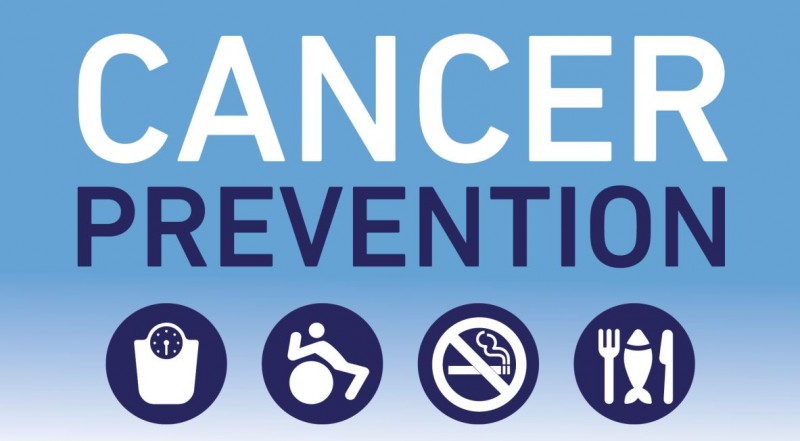
Cancer, a group of diseases characterized by the uncontrolled growth and spread of abnormal cells in the body, remains a significant global health challenge. It affects millions of people each year, impacting individuals and their families physically, emotionally, and economically. However, the good news is that a significant number of cancer cases can be prevented, and early detection can substantially improve the chances of successful treatment and survival.
Understanding Cancer: Causes and Risk Factors
To effectively prevent cancer, it is crucial to understand its causes and risk factors. Cancer can develop due to a combination of genetic, environmental, and lifestyle factors. Exposure to carcinogens, such as tobacco smoke and ultraviolet radiation, increases the risk of developing certain types of cancer. Additionally, genetic mutations can play a role in cancer development.
The Importance of Cancer Prevention
Prevention is the first line of defense against cancer. Simple lifestyle changes, such as maintaining a healthy diet, staying physically active, and avoiding tobacco and excessive alcohol consumption, can significantly reduce the risk of developing various types of cancer. Regular health check-ups are equally vital, allowing for the early detection of any potential health concerns.
Lifestyle Changes for Cancer Prevention
Adopting a healthy lifestyle is instrumental in cancer prevention. Consuming a balanced diet rich in fruits, vegetables, and whole grains provides essential nutrients that support the body's defense mechanisms. Engaging in regular physical activity not only helps maintain a healthy weight but also reduces the risk of certain cancers.
Regular Health Check-ups
Regular health check-ups are essential for detecting any abnormalities or warning signs of cancer. Routine screenings for breast, cervical, colorectal, and prostate cancers can lead to early detection, which significantly improves treatment outcomes.
Early Detection: Key to Successful Treatment
Early detection of cancer is paramount to successful treatment. Recognizing the signs and symptoms of common cancers enables individuals to seek medical attention promptly, increasing the likelihood of positive outcomes. Moreover, participating in regular screening programs is crucial for identifying cancer in its early stages, often before symptoms manifest.
Signs and Symptoms of Common Cancers
Different types of cancer may present varying signs and symptoms. Common signs include persistent coughs, unexplained weight loss, changes in bowel or bladder habits, and unusual lumps or swelling. Being aware of these warning signs can prompt timely medical evaluation.
The Role of Screening Programs
Screening programs are organized efforts to detect cancer in individuals without symptoms. Mammograms, Pap tests, colonoscopies, and prostate-specific antigen (PSA) tests are examples of effective screening methods. Engaging in these programs can detect cancer early, allowing for more treatment options and improved outcomes.
Promoting Cancer Awareness
Raising awareness about cancer is essential to empower individuals with knowledge about prevention and early detection. Media campaigns, educational programs, and community outreach initiatives play a vital role in disseminating information and promoting healthier lifestyles.
Media Campaigns and Education
Public awareness campaigns on various media platforms can reach a wide audience, educating them about risk factors, preventive measures, and available screening programs. Educational programs in schools, workplaces, and community centers can also help raise awareness among different age groups.
Community Outreach Initiatives
Engaging with communities directly can have a profound impact on cancer awareness. Organizing events, workshops, and seminars allows for interactive discussions, dispelling myths, and encouraging proactive health behaviors.
The Impact of Genetic Testing
Genetic testing has revolutionized cancer prevention and early detection. Identifying individuals with a higher genetic risk enables tailored screening and preventive strategies. Additionally, genetic testing plays a critical role in understanding hereditary cancer syndromes, guiding treatment decisions and family planning.
Barriers to Cancer Prevention and Early Detection
Despite progress in cancer awareness and screening programs, several barriers continue to hinder effective prevention and early detection efforts.
Socioeconomic Factors
Limited access to healthcare and screening facilities is a significant challenge in underserved communities. Addressing socioeconomic disparities is essential in ensuring that all individuals have equal opportunities for cancer prevention and early detection.
Lack of Awareness
Many people still lack awareness about cancer risk factors and the importance of regular screenings. Public education initiatives must focus on reaching these populations to promote proactive healthcare behaviors.
Overcoming Challenges: Collaborative Efforts
Overcoming the challenges in cancer prevention and early detection requires collaborative efforts from various stakeholders.
Government Support and Policies
Governments must prioritize cancer prevention and early detection through supportive policies, funding for research, and the establishment of screening programs.
Non-Profit Organizations and Advocacy
Non-profit organizations play a crucial role in raising funds, supporting cancer research, and advocating for improved access to screenings and preventive care.
The Role of Healthcare Professionals
Healthcare professionals, including doctors, nurses, and other caregivers, have a significant influence on promoting cancer prevention and early detection.
Empowering Patients
Healthcare professionals can empower patients by providing personalized counseling on cancer risk factors and prevention strategies.
Encouraging Regular Screenings
Regular interactions with patients present opportunities for healthcare professionals to encourage and remind them about the importance of participating in screening programs.
Survivor Stories: Inspiring Hope and Resilience
Sharing survivor stories can provide hope and inspiration to individuals facing a cancer diagnosis. These stories highlight the importance of early detection, treatment, and the strength of the human spirit.
Cancer prevention and early detection are crucial in reducing the global burden of cancer. By adopting a healthy lifestyle, participating in regular screenings, and raising awareness, we can collectively work towards a future where cancer incidence decreases, and survival rates improve significantly.
Diabetes Mellitus: Types, Risk Factors, and Management
Does ice cream really cool the body? Know why eating it in the summer is harmful
The Revolutionizing Role of Artificial Intelligence in Healthcare